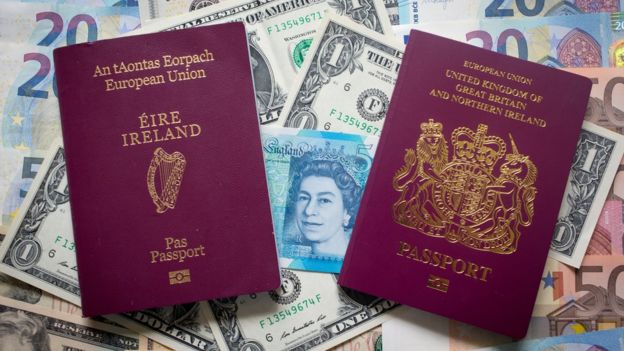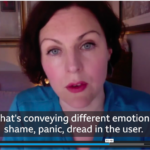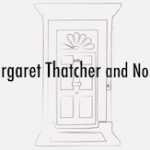There has never been a stranger time to be Northern Irish. As I write, the Tory Westminster Govt. has just made a 1bn deal with the DUP – the most socially conservative, insular, backward looking party in the UK – in order to hang, by its fingernails, to power. The DUP are a party who for over a decade have dominated and repressed Northern Ireland. They have clung on to an erroneous idea of “Britishness” which has never included them; spent a large proportion of a meagre budget on pageantry and marches; enabled continuing bigotry, prejudice & corruption and ensured that so called “progressive” ideas which the rest of the UK take for granted like a woman’s right to choose and gay marriage are “not for us”.
This is not, I believe, because the majority of the Northern Irish population are themselves socially conservative or extremely right-wing. It is not tied to any global lurch to the right. It is a function of generation after generation here being exposed to the meddling of the British government, entrenched Green vs Orange tribalism, and civil war. You might say that the DUP demanding cash for votes could be categorised, in some quarters, as reparations for Northern Ireland being left to rot by Westminster. I only had to look at my Facebook feed the day after the UK General Election earlier this month – panicked Londoners screaming WHO THE FUCK ARE THE DUP?? WHERE HAVE THEY COME FROM?? – to be reminded that up until that point, Northern Ireland was an afterthought at most.
Not that I have particularly identified as “Northern Irish” over the last 20 years, either. Although born here, and now living here again with my young son, I have spent my adult life away – first at University in Edinburgh, then for 16 years in London – although I visited often. I still commute to London a few times a month for work. If anything, I probably represent that much criticised demographic the “citizen of the world” or “metropolitan liberal elite” – comical, given my current financial situation. Living in a diverse city has ensured that I have friends from all over the place and have always imagined that I could live anywhere I wanted.
But the EU referendum result in June 2016, and personal circumstances, plunged me into deep thought about citizenship and identity. Back in 2014 I found myself the sole parent of a new-born after having to end a relationship, trying to continue my long running business part time, far from family support & embroiled in family court proceedings. Not a scenario London, or much of Conservative led England, is designed for. I eventually decided to return to Northern Ireland for a while, to get back on my feet. I returned a year ago today.
Immediately after the EU referendum, like thousands of others, I asserted my right to dual citizenship, applied for and received my Irish passport. This was a knee jerk reaction; a desire to hold on to an internationalist point of view, and fear that my son would not enjoy the same freedoms if he was British post Brexit. Over the last year, living in Northern Ireland, it has deepened into something else.
Initially on returning home, my sights were on the Irish Republic as a possible destination. It had taken on a new, distinctly romantic tint post Brexit. Was I not a Celt at heart? Did I not look distinctly Irish? Brought up Catholic to two Catholic parents (although now with no religion, of course, true to my demographic) my family Irish for generations? I had spent far too long under the influence of English culture, I concluded firmly, and must embrace my Irishness and show my mixed heritage son – English, Irish and Mauritian Indian – his sparkling emerald roots. Who wanted to live in a crumbling post Brexit UK? Then I updated my research on that mysterious place south of the border. Surely things had improved, after all this time under the supposedly benign influence of the EU? Certainly Dublin was buzzing with confidence and creativity, the economy alive again. But No. Still no NHS. Still no separation of Church and State. Prejudicial school selection in favour of Christians. High cost of living. Precarious job security and complex social security. Abortion illegal, as in NI. A massive bank bailout funded by the people with no return. Allegations of corruption dogging both Fine Fail and Fine Gael. An economy based on being a tax haven for absurdly wealthy, monopolising corporations like Apple and Google, the former currently under heavy fines by the courts for its Irish operations. A Taoiseach (recently replaced) genuflecting nervously to Trump, cap in hand. Not the place for a hopeful progressive, or a single parent who wanted to work part time (apologies to my friends in the South who, actually living there rather than nationality browsing, may disagree). The UK, though falling apart itself under the Tories, was starting to look like marginally the lesser of two evils as long as I had my trusty Irish passport.
Then I started to consider Sinn Fein. It had been a slow process, somewhat shrouded in shame initially. I had looked into their policies before the Northern Ireland Assembly Election in March, an election triggered by the resignation of the late Martin McGuiness and resulting in huge gains for Sinn Fein in the North. I had been impressed by the strident, progressive women leading them – Michelle O’Neill and Mary Lou McDonald – by reports of how McGuiness had held power sharing together, and how much he had evolved politically. It seemed to me that their commitments to equality and social liberalism – pro choice, pro gay marriage, emphasising inclusion for all ethnic, religious and gender identities, suggesting “special status” for Northern Ireland in the EU and protected British citizenship for Unionists in a United Ireland, upholding and defending the Good Friday Agreement, criticising the economic dependence on corporations in the Republic and acknowledging that the EU needs serious reform – were genuine. Not posturing or tribalism or political point scoring but the result of real, organic growth over the last 20 years, a truly progressive outlook and political pragmatism.
Of course, Sinn Fein comes with enormous baggage. My parents were shocked that I voted for them this time around. Theirs is a generation that will never be able to separate them from the IRA and “The Troubles”, particularly while Gerry Adams is still their president. They would no more vote Sinn Fein than they would DUP. I understand that and respect it, although I think it would be helpful to understand that BOTH parties in the (currently non-existent) NI assembly have their historical links with paramilitaries. As Mary Lou McDonald puts it, there are “multiple narratives” about Irish history, and they can never be reconciled. We must accept that to move forward. But I think that my generation has moved on, and I represent a new kind of voter in Ireland. One that would like a united Ireland post Brexit, but a united Ireland that is very different from the current one. I am not coming from a tribal Green vs Orange religious point of view, or a romantic Nationalist point of view, or even a hard-headed economic point of view. I am able to separate life now, and in the future, from the horrors of the past. The world is in a torrid state and I have come to the conclusion that I would like to have the option of living, with my child, in the place of my birth as one island and part of the EU – even with the undeniably deep flaws of that lumbering institution.
I’m not suggesting it will be easy or come about quickly. There may be some time before we even have a border poll. I will probably move back to England myself for a time, which makes this stance a tad hypocritical. I may live somewhere else entirely, depending how life goes. But I like what I’m hearing from Sinn Fein about the possibility of a different kind of Ireland. One where Church and State are separate, there is a National Health Service, equality is enshrined in law, women can choose abortion, economic policy considers the general population and Unionist identity is respected. One that is affordable because there is no duplication of resources, as is the current situation with partition. One that is global in outlook and part of, indeed contributing to, EU reform. It seems that voters in the Republic are warming to it also, given that Sinn Fein is now the third largest party there.
Many cynics scoff at these ideas and say that a leopard never changes its spots, the Unionist population in the North will never buy it, we can’t afford it, there will be renewed violence, people in the South don’t want it anyway, tribalism will continue, we are all doomed. I’m sure the picture is much more complex than I’m presenting here. But I’m also sure that I’m not alone in looking at Irish politics anew. we can choose to see this as an opportunity. We can choose not to listen to those negative voices. And I will do what I can, from Northern Ireland, England or anywhere else, to continue the conversation and contribute to a new vision for Ireland in these unprecedented political times.





